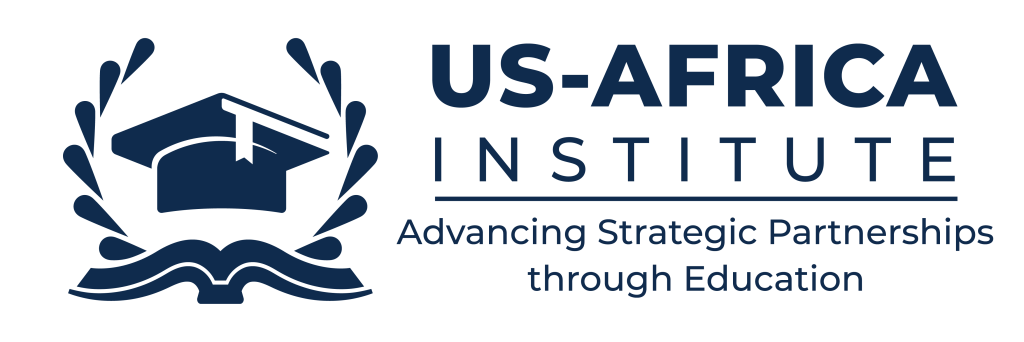Programs
Mandela Washington Fellowship Enrichment Institute
The U.S. Africa Institute has been selected to serve as one of the co-hosts for the Mandela Washington Fellowship’s Alumni Enrichment Institute. This summer we will be co-hosting twenty five young leaders from Sub-Saharan Africa in partnership with California State University Dominguez Hills, and Charles Drew University. A grant from the U.S. Department of State has made this exciting program a reality. The Mandela Washington Fellowship is the flagship program of the Young African Leaders Initiative (YALI). YALI was created in 2010 and supports young Africans as they spur economic growth and prosperity, strengthen democratic governance, and enhance peace and security across Africa. Since 2014, the U.S. Department of State has supported nearly 5,100 Mandela Washington Fellows from across Sub-Saharan Africa to develop their leadership skills and foster connections and collaboration with U.S. professionals.
Democracy, Rule of Law and Human Rights Project
The Democracy, Human Rights, and Rule of Law project provides educational opportunities to students and faculty in Africa with U.S. academics offering thematic and topical areas that are deemed essential to governance and nation building. The project enlarges the space of shared values between Africa and the United States, leading to increased understanding and strengthening of economic and cultural ties between the two countries, and advancing democracy, peace and prosperity. The purpose of the lecture series delivered through a speaker series is to empower young leaders helping them to understand American democratic institutions and values that govern human rights and administration of the rule of law in the United States, and be able to apply the lessons learned in their country as educators, civil servants, and members of the civil society.
Integrated Virtual Exchange Learning
The U.S. Africa Institute is developing partnership with a number of U.S. academic institutions to offer faculty exchange programs, joint research activities, and professional development utilizing an Integrated Virtual Exchange Learning (IVEL) platform. The potential for impacting educational institutions through IVEL is largely untapped and promises to be significant and transformational. Several universities and colleges have been identified as candidates for implementing the IVEL model, namely Addis Ababa University, African Development University, Catholic University of Eastern Africa, and University of Juba, just to name a few of the prospects. U.S. universities primed for this partnership include California State University Dominguez Hills, Charles Drew University, and a number of Historically Black Colleges and Universities (HBCUs) that are looking at opportunities in Africa with intense interest.
American Spaces Programs
The U.S. Africa Institute offers academic support programs to students in partnership with American Spaces, which are an integral part of the Office of Public Affairs of U.S.- American Embassies. Currently, we offer academic support and leadership programs in Ethiopia in partnership with American Space. The program advances shared cultural roots and bonds between African and American students and young professionals that provide a powerful bridge between them, and an opportunity to share new learnings through education, cultural exchange, volunteerism and leadership.
The course curriculum offerings through this program are based on the skills and talents of the volunteer pool in combination with the American Spaces recommended program areas. We employ a collaborative team approach for all aspects of the program design that includes course design, planning, and instructional delivery. As a result of of a collaborative partnership developed in 2021 between USAI and American Spaces, six Learning Clubs have emerged which were part of that drive our course design and implementation for our first round of programming, including Cross-Cultural Book Club, Creative Club (STEAM), Debate/Human Rights/International Relations Club, English Language Development Club, Environmental Health Science Club and American Culture and History Club.
Student Recruitment for U.S. Colleges
The U.S. Africa Institute is developing a partnership with Charles Drew University in Los Angeles to increase enrollment of African Diaspora students. The partnership referred to as African Diaspora Outreach Program (ADOP), if funded, will commence in 2023. We intend to expand the student recruitment program to Africa through partnership and collaboration with schools and other academic institutions. In addition to the current project with Charles Drew University in Los Angeles, we also intend to expand student recruitment for other U.S. colleges and universities to recruit students from backgrounds who identify as of African descent within the United States and in Africa. We will train and mobilize community representatives to recruit students into higher education.
Policy Advocacy and Capacity Building
The U.S. Africa Institute collaborates with various stakeholders, including higher education institutions, policy makers, education-based non-profit organizations and educational technology companies to advocate for equitable policies to increase resources and accessibility of college for African and first generation African immigrant students in U.S. colleges to improve the admission and success of underrepresented students in our communities. We are also engaged in policy advocacy efforts to advance the educational success of the young population in the community to address barriers to academic success and career goals. We also provide technical support and capacity building training in partnership with academic institutions to enhance the capacity of higher education institutions in Africa to deliver quality higher education and ensure access to education. The Capacity Building project also intends to strengthen teaching capacity in the institutions and mobilize resources that support human capital development with the potential of increasing the continent’s capability in research and innovation and entrepreneurship.
